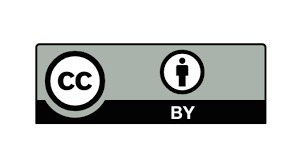Abstract Thinking from Interdisciplinary Math
El pensamiento Abstracto a partir de la interdisciplinariedad de las Matemáticas
Main Article Content
When the mathematic science begin as the science that show the human abstract thinking consider the process in which the men takes a real situation and he transforms it in a mathematic’s law, the human thinking’s development catch the need to convert a problem into a process thinking that can gives the solutions and the same time founds an other situations that have its solutions. The Mathematic calls it “Theorem” from a conditions the tesis is verified but this is not only the tesis it is the verify of the similar situations that indicated the same conditions and solutions. The abstract thinking derives the fundamental steps that can use a singularity problem and through the process used to found its solution, it’s possible found the law that describe the performance’s set necessary to develop it.
Downloads
Article Details
Mozaz Garde, J. (1985). El pensamiento abstracto considerado como función mental superior. Rev. Log., Fon., Audiol., vol VII, No.2 (66-67).
Longo, P. Concreto/astratto: una dinamica necessaria nell’insegnamento primario della matematica. Retreived from http://old.unipr.it/arpa/dipmat/labnum/guzzoni/AVVENIMENTI/PDFMONTICELLI/Longo.pdf
Munkres, J.R. (2002). Topología 2.a edición. Pearson Educación, S.A., Madrid, 2002.
Munkres, J.R (1993). Elements of algebraic Topology, Perseus Book Mass.
Rudin, W (1972). Real and Complex Analysis, 3rd edition. McGraw-Hill Book Company, New York, 1987.
Gellner E (2002). Lenguaje y soledad: Wittenstein, Malinowsky y el dilema del los Hasburgo. Síntesis; Edición 1 (2002)
Serrano, M.S. (1993) Didáctica del las Matemáticas. Dialnet. Revista de la Facultad de Educación de Albacete, No.8, 1993, págs. 173-194.
Lepschy, A. (2005) Indagine sull’etimologia e sulla datazione di un termine matematico. Lingua e stile, Vol. 40, No. 1, 2005, págs. 91-106.
Caporaso, L. (2016) Il concetto matematica di cui non potremmo fare a meno: Spazio Topologico. MaddMaths (Matematica Divulgazione Italiana). Retrieved from http://old.unipr.it/arpa/dipmat/labnum/guzzoni/AVVENIMENTI/PDFMONTICELLI/Longo.pdf.
Repubblica (R.it). Cos’è la topologia, premiata con il nobel per la Fisica 2016. Retrieved from http://www.repubblica.it/scienze/2016/10/04/news/nobel_per_la_fisica_-_la_scheda_cos_e_la_topologia-149092410/.
Manaresi, M. (2005). Matematica e cultura in Europa. Springer Science & Business Media, 2005, 409 pages.
Manetti, M. (2014). Topologia. Springer, 2.da Edizione.
Lebesgue, H. (1904). Leçons sur l'integration et la recherche des fonctions primitives. Collection de monographies sur la theorie des fonctions, Paris, Gauthier-Villars, 1904.
Aleksandrov, P.S. (1972). Poinceré and Topology. The London Mathematical Society
Russian Mathematical Surveys, Volume 27, Number 1




 Perfil Google Scholar
Perfil Google Scholar



